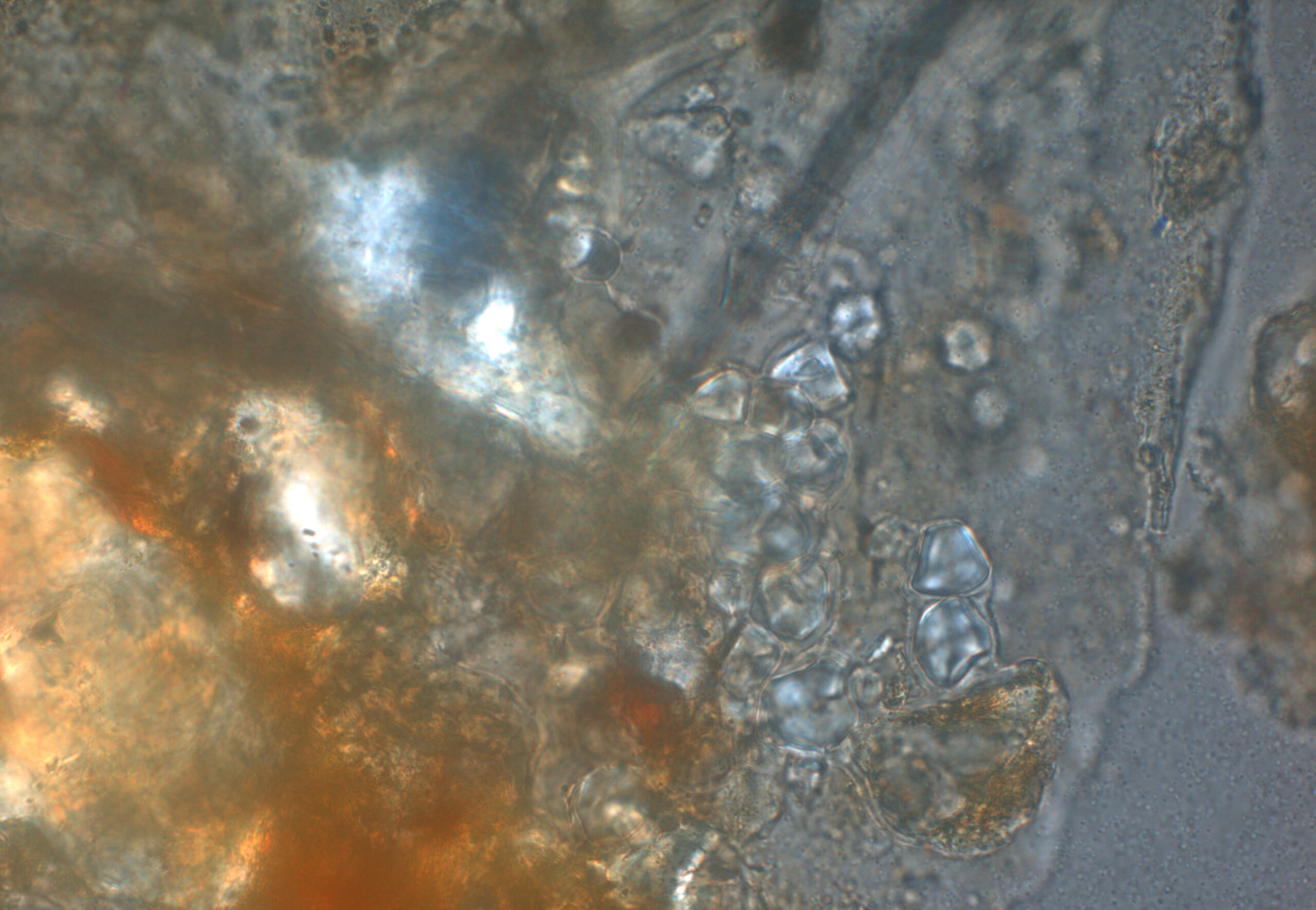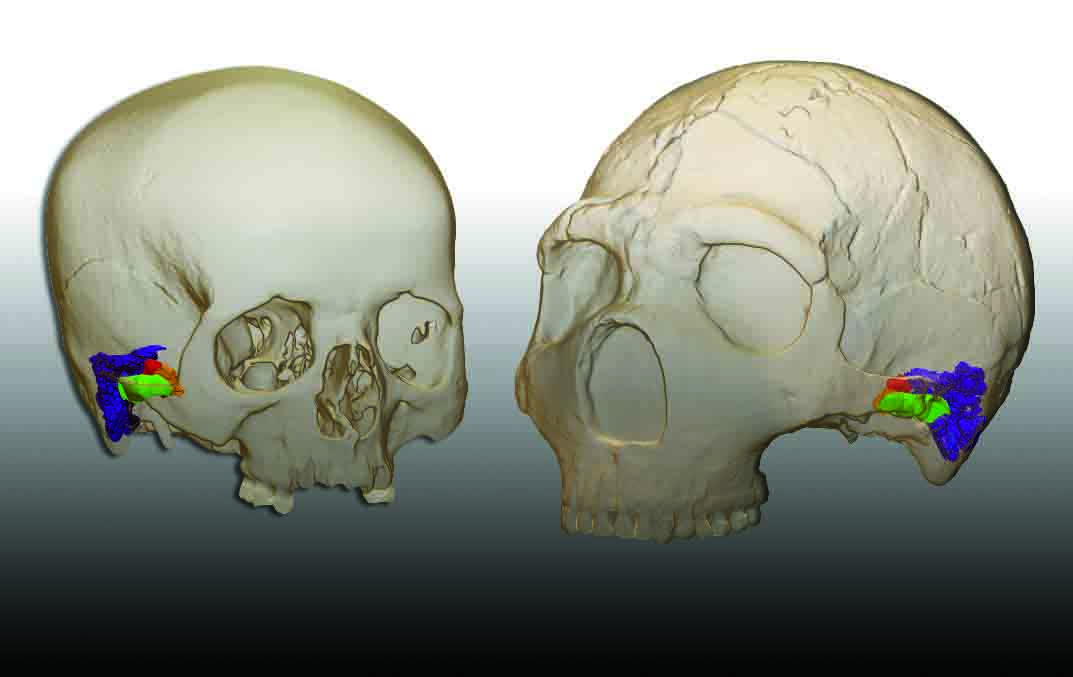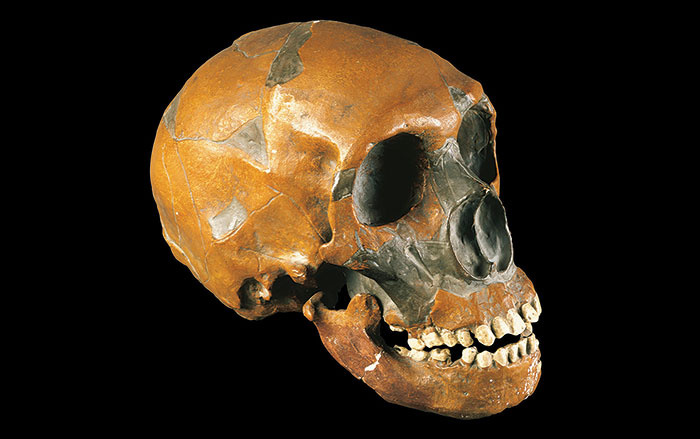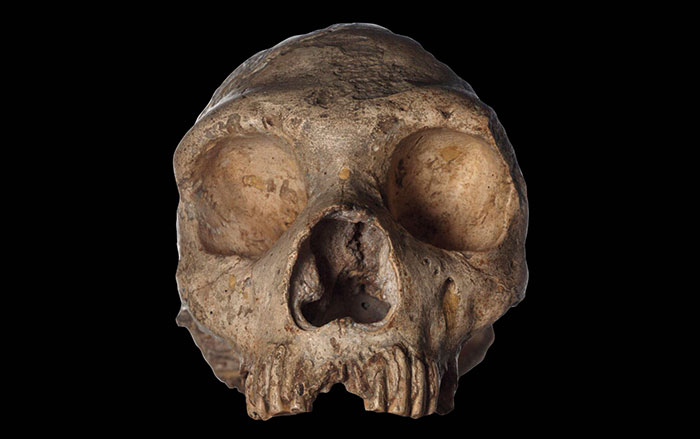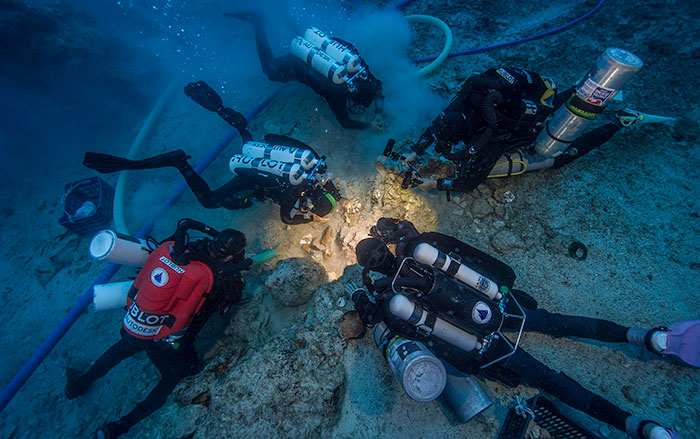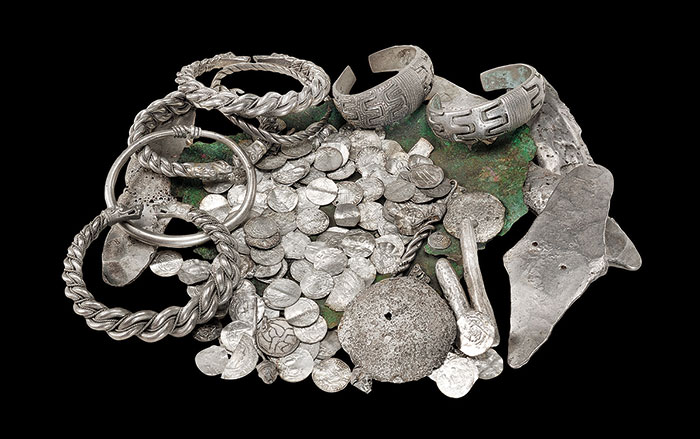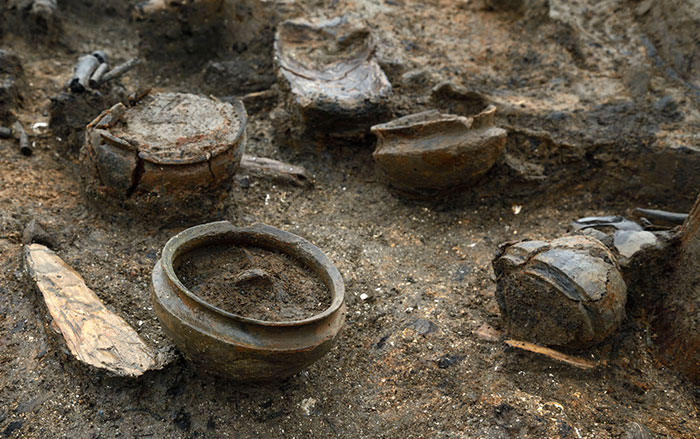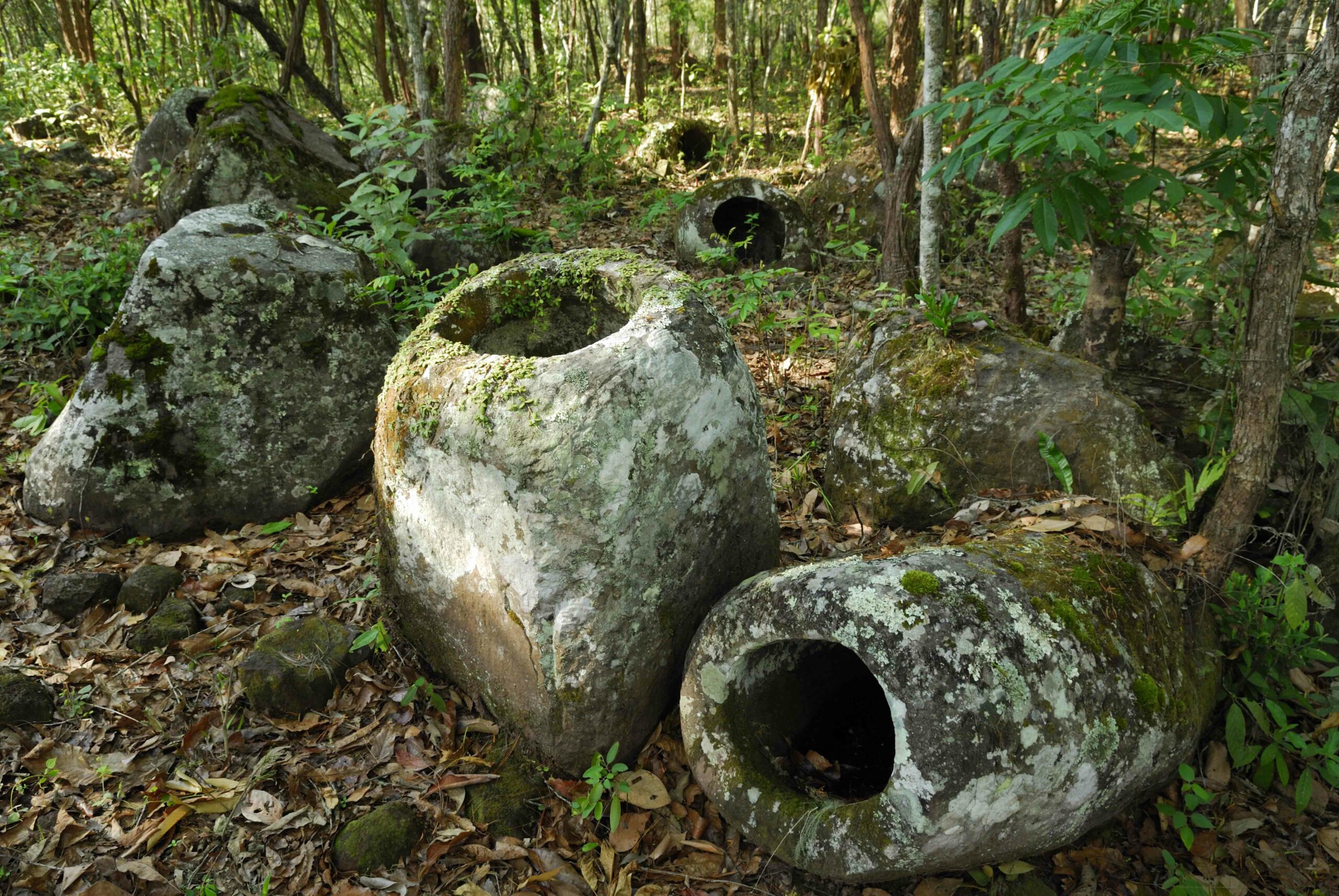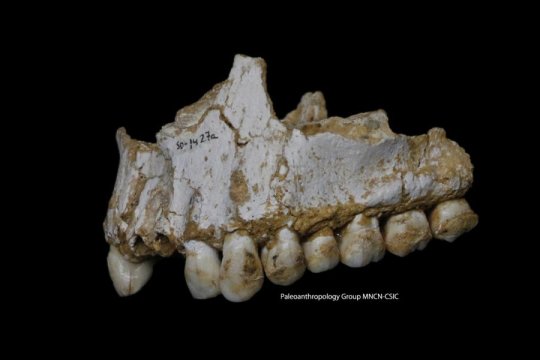
ADELAIDE, AUSTRALIA—Nature reports that scientists from the University of Adelaide and the University of Liverpool analyzed DNA obtained from the dental plaque of five Neanderthals whose remains were recovered in northern Spain’s El Sidrón Cave, and compared the results to a study of the plaque obtained from four Neanderthals buried in Belgium’s Spy Cave. The results suggest that while the Neanderthals from Spy Cave enjoyed rhinoceros and sheep meat, the Neanderthals living in Spain ate a vegetarian diet. One of the individuals, who suffered from a dental abscess, also carried an intestinal parasite. His plaque contained traces of poplar, which contains the active ingredient in aspirin, and a natural antibiotic mold. Neither of these substances were detected in the other plaque samples, which suggests he may have been treated with medicinal plants. The genome sequence of one of the types of ancient mouth bacteria in the samples suggests it was transferred to Neanderthals from modern humans. “If you’re swapping spit between species, there’s kissing going on, or at least food sharing, which would suggest that these interactions were much friendlier and more intimate than anybody ever possibly imagined,” said Laura Weyrich of the University of Adelaide. To read in-depth about the study of ancient dental plaque, go to “Worlds Within Us.”


